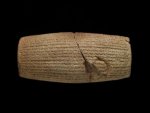Baff
Member
- Joined
- Apr 15, 2016
- Messages
- 113
- Reaction score
- 6
- Location
- UK
- Gender
- Male
- Political Leaning
- Undisclosed
As was everyone.
The difference between their level of tiredness and ours.... about a million troops. Better armed troops.
Better armed with a shorter logistics train. They rolled Germany and we stood back and watched them do it.
What else could we do?
Make no mistake, they were the senior partner in that war. Stalin called the shots.
Not Roosevelt and not Churchill.
Russia is unparalleled as a military power in Europe. It has been since that war.
That dead 20 million has served to motivate them somewhat.
The difference between their level of tiredness and ours.... about a million troops. Better armed troops.
Better armed with a shorter logistics train. They rolled Germany and we stood back and watched them do it.
What else could we do?
Make no mistake, they were the senior partner in that war. Stalin called the shots.
Not Roosevelt and not Churchill.
Russia is unparalleled as a military power in Europe. It has been since that war.
That dead 20 million has served to motivate them somewhat.

